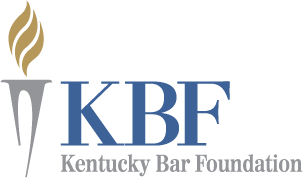Blog
- 2021
- June
- 2020
- August
- June
- March
- February
- 2019
- December
- November
- May
- 2018
- September
- 2017
- July
- February
- January
- 2016
- November
- October
- September
- August
- July
- June
- May
- April
- March
- February
- January
- 2015
- December
- November
- October
- September
- August
- July
- June
- May
- April
- March
- February
- January
- 2014
- December
- November
- October
- September
- Aaron (2)
- accident (1)
- Acena (1)
- adoption (1)
- agreement (1)
- Alimony (1)
- Announcements (4)
- Arnold (2)
- Arnold Taylor (2)
- Attorney (2)
- attorneys (3)
- Auto (1)
- auto (1)
- automobile (1)
- Beck (2)
- bias (1)
- bite (1)
- CCDW (1)
- CHFS (1)
- child abuse (1)
- civil rights (1)
- Civil Rights Act of 1964 (1)
- clean record (1)
- commission (1)
- conceal carry (1)
- conceal weapons license (1)
- conspiracy (1)
- constitution (1)
- construction defects (1)
- conviction (1)
- crime (2)
- criminal (2)
- criminal defense (1)
- David (1)
- David Sloan (1)
- defamation (1)
- department of labor (1)
- Discharged (3)
- Discrimination (5)
- diversity (1)
- divorce (3)
- dog (1)
- DOL (1)
- draw system (1)
- election (1)
- Employment (6)
- Employment Law (1)
- Equal Pay Act (1)
- Estate (1)
- estate planning (4)
- expungement (1)
- Fair Labor Standards Act (2)
- family law (4)
- federal (1)
- federal court (1)
- federal criminal charges (1)
- Federal Labor Standards Act (FLSA) (1)
- felony (1)
- FFCRA (1)
- Fired (2)
- firm (1)
- first amendment (1)
- FLSA (1)
- free speech (1)
- Gary (2)
- Gary Sergent (1)
- government (1)
- grandparent custody (1)
- guidelines (1)
- guilty (1)
- gun permit (1)
- Harassment (2)
- hostile work environment (1)
- hostility (1)
- injured on the job (1)
- injury (1)
- innocent (1)
- intra-corporate (1)
- Jessica (1)
- Jessica Wimsatt (1)
- judge (2)
- judicial (1)
- judicial conduct (1)
- jury trial (1)
- justice (1)
- juvenile (1)
- KBA YLD (1)
- Kentucky (2)
- Know Your Rights (1)
- Labor (2)
- Labor Law (1)
- law (1)
- lawyer (1)
- Lawyers (1)
- legal profession (1)
- liability (1)
- libel (1)
- living will (1)
- Maintenance (1)
- Megan (2)
- Megan Mersch (1)
- Mersch (2)
- Michael (4)
- Michael J. O'Hara (1)
- mine safety (1)
- minimum wage (1)
- motorcycle law (1)
- need attorney (2)
- off-road vehicles (1)
- OHara (3)
- Ohio (1)
- Our attorneys (3)
- Paid Family Leave (1)
- Paid Sick Leave (1)
- parole (1)
- pets (1)
- Planning (1)
- plea (1)
- power of attorney (2)
- Pregnancy Discrimination (1)
- pro se (1)
- probate (2)
- property distribution (1)
- protected class (1)
- race (1)
- recuse (1)
- Repairs (2)
- Ruberg (1)
- school law (2)
- sentencing (1)
- separation (1)
- Sergent (2)
- severance (1)
- sexting (1)
- slander (1)
- Sloan (1)
- social media (1)
- Spousal Support (1)
- state criminal charges (1)
- Sue Cassidy (1)
- super lawyers (1)
- talking to the police (1)
- Taylor (2)
- tender back (1)
- tip credit (1)
- Title VII (1)
- trusts (2)
- victim (1)
- wage and hour (3)
- website (1)
- will (3)
- wills (2)
- wills and estates (1)
- Wimsatt (1)
- workers compensation (1)
- Working off the clock (1)
- workplace discrimination (2)
- wreck (2)
- Young Lawyers (1)
New Federal Overtime Rules Impact Employer Schools
1. Rule: Though the U.S. Department of Labor's (DOL) new overtime rule was published on May 23, 2016, the final rule does not take effect until December 1, 2016. That means that all employers, of all shapes and sizes, must be in compliance with the salary threshold requirements by that date, irrespective of their fiscal year start dates.
Implications: This could be a challenge for school districts, because by this time in a school district's calendar, most school districts have likely already prepared their budgets for the upcoming 2016-17 school year. However, there may still be time to make modifications based on a July 1 fiscal year.
2. Rule: Administrators and teachers are exempt from the overtime rule and are not eligible for overtime compensation.
3. Rule: The minimum salary threshold for all non-highly-compensated employee categories (executive, administrative, and professional) is $47,476 per year.
Implications: This threshold means that few school district employees will likely be affected by the rule change.
4. Rule: The minimum salary threshold for all highly compensated employees has been raised to $134,004 per year.
Implications: This threshold means more highly paid school district employees will continue to be ineligible for overtime under the rule.
5. Rule: The proposed annual update to the minimum salary threshold has been changed from every year to every three years, setting the date for the increase to a firm January 1st date, beginning on January 1, 2020. Again, this triennial automatic salary update will occur irrespective of a school district's fiscal year start date.
Implications: A longer period for threshold changes means school districts do not have to anticipate yearly budgetary changes based on the final rule. This shift to a calendar year update schedule means that school districts will have to make these financial changes mid-budgetary cycle. However, the three-year period provided in the final rule gives school districts more time to include changes in annual budget cycles as they prepare for the triennial increase. Thus, a school district can prepare for the January 1, 2020 increase during the development of the 2019-20 school year budget in early spring 2019.
6. Rule: The final rule allows employers to include NON-discretionary bonuses, incentives, and commissions, paid quarterly or more frequently, as part of the total annual salary for exempt-status determinations.
7. Rule: No change to the "Duties Test."
Implications: None. Salaried workers who primarily perform executive, administrative, or professional duties continue to be exempt from DOL's overtime rules.
To learn more about how these and other federal, state, and local laws that may affect schools as employers, contact us for more information.
Author: Don Ruberg, Esq.







